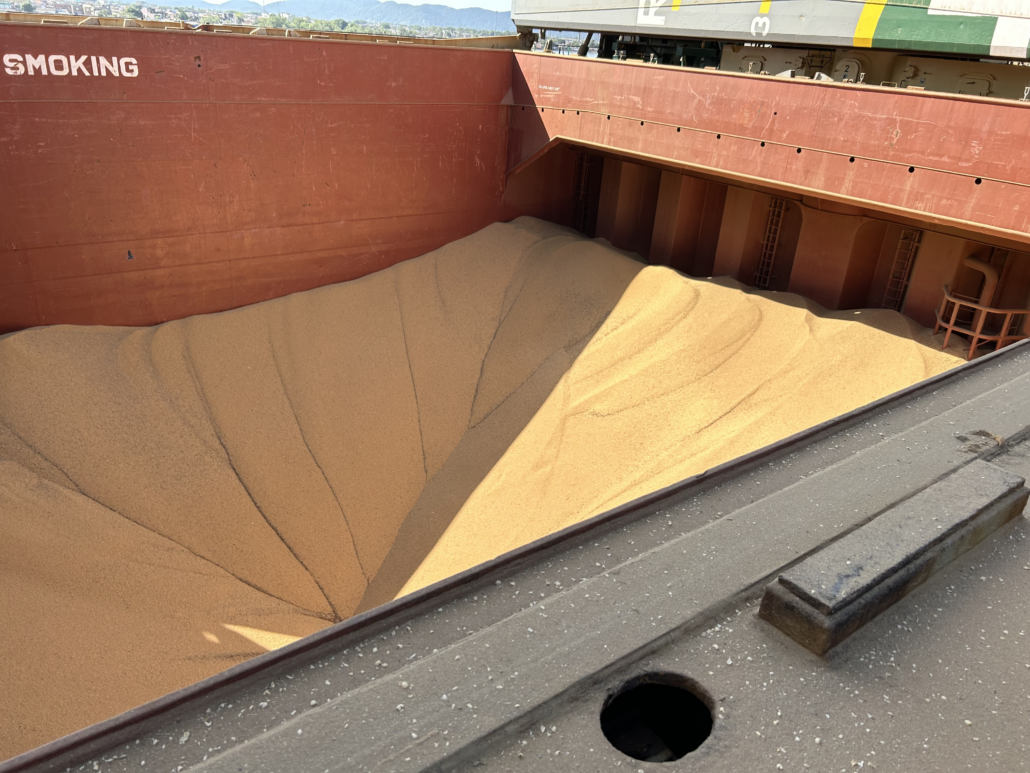MV Armia Krajowa (39,071DWT) loading Soyabeans on a nice sunny day at the port of Santos, Brazil.




Soybeans are originated in East Asia and are now widely grown and consumed throughout the world. According to the Michigan Soybean Promotion Committee, soybeans are the number one source of plant-derived protein on the planet. The Chinese began cultivating soybeans over 3,000 years ago.
They are rich sources of protein, fiber, vitamins, and minerals and are commonly used in a variety of foods, including tofu, soy milk, tempeh, and soy sauce.
Soybean oil is another important byproduct of soybeans, which is widely used in cooking and food processing. It is a versatile oil with a neutral flavor and a high smoke point, making it ideal for frying and baking.
Soybean meal is another common byproduct of soybeans, which is produced by grinding the leftover soybean solids after the oil has been extracted (the crushing process). Soybean meal is a rich source of protein and is commonly used as an animal feed, particularly for poultry, swine, and dairy cattle.
Other byproducts of soybeans include soy flour, which is made by grinding whole soybeans into a fine powder and is used as a protein-rich ingredient in baked goods and other food products, and soy lecithin, which is a natural emulsifier used in a wide variety of food products, including confectionery items, baked goods, and salad dressings.
Overall, soybeans and their byproducts are widely used in the food and agriculture industries and provide important sources of protein, fiber, and other essential nutrients.
